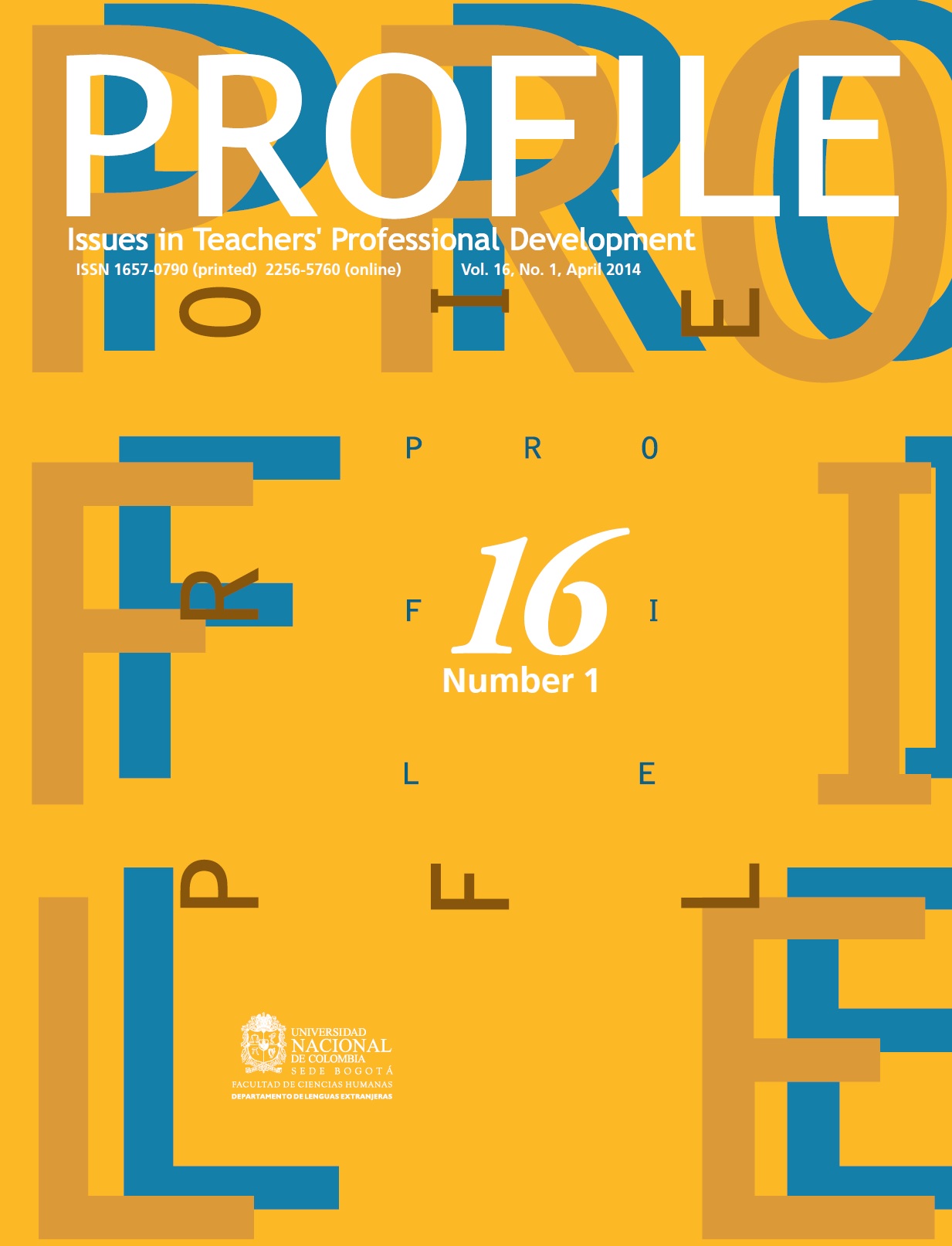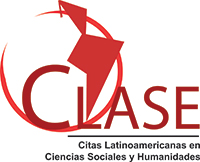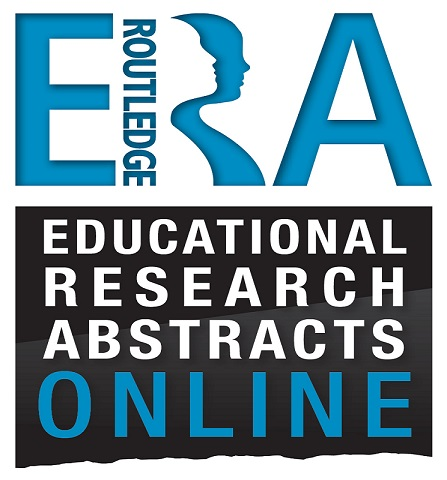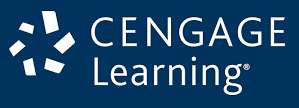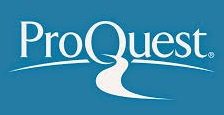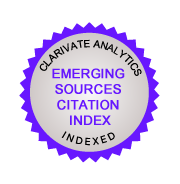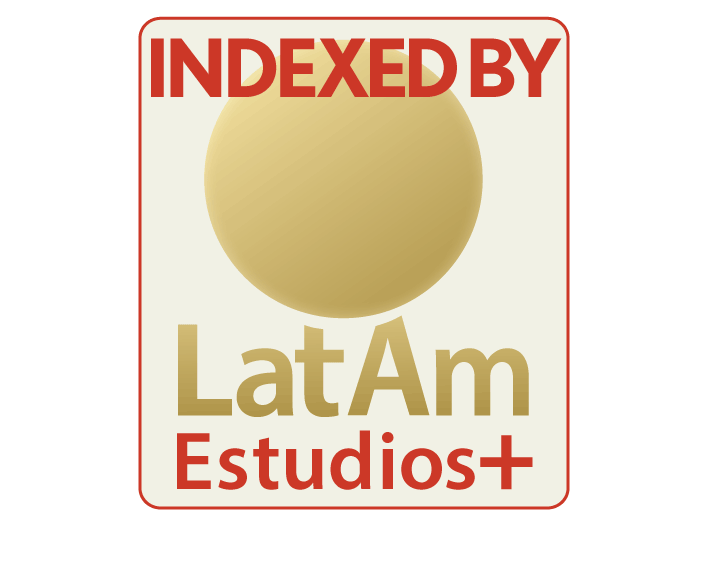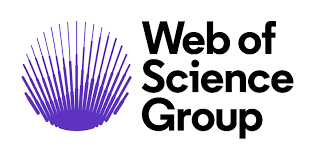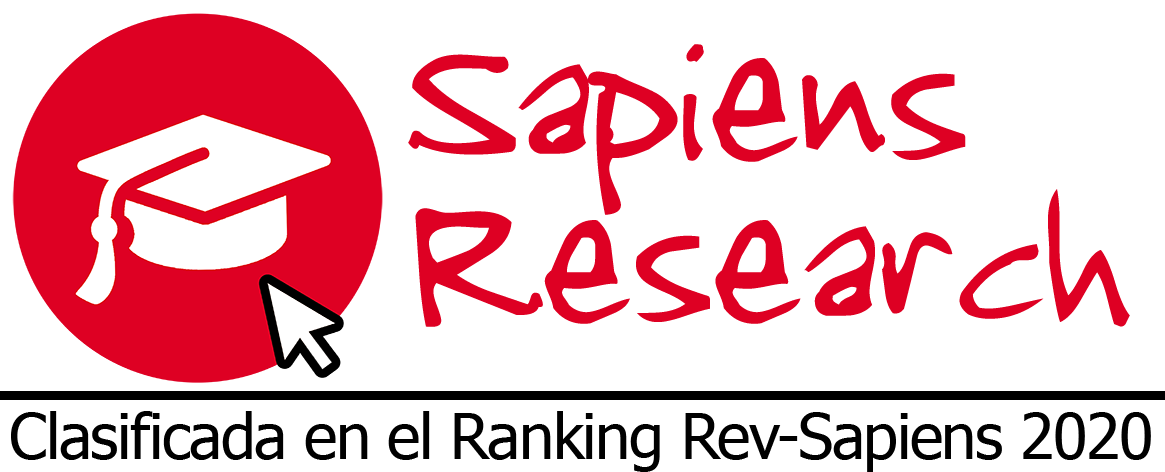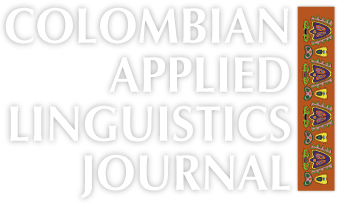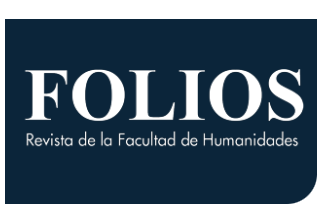Editorial
Descargas
Editorial
The continual striving for the optimal teaching of English as a foreign language and adequate preparation of teachers at all levels of education combined with more global processes aimed at an appreciation of teacher professionalism, autonomy and creativity laid fertile grounds for the gradually increasing interest in teacher research, and shortly afterwards, action research. (p. 11)1
The above quote, from the most recent work of Polish professor Danuta Wiśniewska, one of the members of our Editorial Review Board, is in accordance with some of the reasons we have to keep our work in PROFILE. We feel that a journal like ours is an important forum for teachers at all levels of education to make their work more accessible to the public. As you can observe in the contents of this edition and in all the issues published up to now, every work included in PROFILE is derived from processes of inquiry that followed the principles of classroom research and/or innovation.
Whether authors report research projects, reflections or innovations, the ultimate goal is to share with the academic community the results of systematic processes carried out in their teaching contexts. Accordingly, we can ensure that we expand our knowledge base and expand our understanding of the phenomena found in our daily practices. It is also hoped that as a result of our inquiries, we can both move forward in the teaching of English and develop professionally.
Before introducing the works of this edition, I wish to welcome the following scholars, who have accepted our invitation to be part of our scientific and editorial review board: Nora Basurto (Universidad Veracruzana, Mexico), Pilar Mur-Dueñas (Universidad de Zaragoza, Spain), José Aldemar Álvarez (University of Arizona, USA) and Hashemi Akram (Islamic Azad University - Roudehen Branch, Iran). Their feedback, together with the expertise of the reviewers who have collaborated with us for several years, has been vital for the continuation of our work in accord with PROFILE’s mission and vision.
I am pleased to present the first number—of the sixteenth volume—of our journal, which, as noted by Wiśniewska (2013), supports the gradually increasing interest in teacher research. With this idea in mind, we have gathered 13 articles this time by authors from Colombia, Chile, Iran, Mexico, and Spain.
We open the Issues from Teacher Researchers section with an article by Colombian schoolteachers Ivon Aleida Castro Huertas and Lina Jazmín Navarro Parra, who report on an action research project aimed at developing oral communication among first graders, using songs as a strategy for young learners to use and enjoy English. We can learn how the teacher-researchers tried to encourage students using simple and amusing songs to help them learn new vocabulary in English and develop oral skills from the very moment they begin their literacy process.
Then, Yakelin Salinas Vacca shares with us her work in the area of information and communication technologies (ICTs). Her article represents an exploratory, descriptive, and interpretive study regarding a collaborative project development in a virtual environment with low-intermediate Colombian undergraduates. Her findings acquaint us with the roles played by students, the teacher and the class monitors, as well as those of the discussion boards.
Next, we gather two articles concerning teacher education in Latin American contexts. First, we can read the account written by Mexican authors Alberto Mora, Paulina Trejo, and Ruth Roux, who focused on the professional development of two English language teachers in a Mexican language center. The study provides information regarding the interplay between professional development, identity and agency, and the part played by English language teaching certificates in all of these areas.
Second, we find the contribution by Frank Giraldo, who developed an action research study at the language institute of a Colombian university. The study focused on the impact of a professional development program on English language teachers’ classroom performance. The conclusions support the idea that these programs must be based on teachers’ philosophies and needs. These programmes are also expected to effectively articulate theory, practice, experience, and reflection.
Afterwards, we gather four articles that discuss learners’ self-efficacy, reading, and writing. To begin with, Iranian authors Sasan Baleghizadeh and Mahboobeh Mortazavi share with us the results of a project they conducted to investigate the impact of different methods of journaling on self-efficacy of learners of English as a foreign language. The work conducted with upper-intermediate Iranian English language learners suggests the benefits or feedback conditions to have students achieve higher self-efficacy.
Next, we present two articles based on studies concerning reading comprehension at Colombian universities. Sergio Lopera Medina reports on the motivation conditions in a foreign language reading comprehension course offered in both web-based and face-to-face modalities. Interestingly, some similarities were found in the courses: the use of teaching aids, mastery gain in reading, proper presentation of tasks, and lack of humor. However, the differences in both teaching modalities involve constant motivation, technical support, interaction among students, anxiety, and the high number of exercises. Then, we present an article by Gladis Leonor Arias Rodríguez, who informs us of a study conducted at a Colombian private university with students of English from the law program with the purpose of analyzing the effects of applying reading English for specific purposes with criteria from the communicative approach and by using specialized readings. We can learn how students became motivated to gain vocabulary and knowledge about their field of study and to use English while interacting in real situations.
Then, we have the last article of the first section of this edition, by Nancy Emilce Carvajal Medina and Eliana Edith Roberto Flórez. The authors share with us the findings of a study that sought to examine how collaborative work relates to undergraduate electronics students’ academic writing development in English as a foreign language at a Colombian university, following some specific writing stages. The results showed the benefits of process writing and teacher feedback so that students can engage in writing research articles in a dynamic way.
The second section, Issues from Novice Teacher Researchers, is composed of the paper written by Luis Fernando Cuartas Álvarez. His work was part of the fulfilment for the BA degree in foreign languages at a Colombian university. The author worked with a group of Colombian secondary students with the purpose of examining the enhancement of the English learning process through a selective use of the students’ mother tongue. This was done with the aim of overcoming the students’ reluctant attitude towards learning English within the classroom. The main findings show that the mother tongue plays an important role in students’ English learning process by fostering their affective, motivational, cognitive, and attitudinal development.
We close this edition with four papers in the Issues Based on Reflections and Innovations section. First, we can learn about the design of a rubric to evaluate laboratory reports written by undergraduate astronomy students at a Chilean university. In her article, María Cristina Arancibia Aguilera describes the process of elaboration, peer validation, and application of the rubric to the evaluation of written tasks. She also gathers useful guidelines to direct students’ attention towards the critical components of the laboratory report genre. Subsequently, we can read an article by Spanish researcher Rosa Muñoz-Luna on content and language integrated learning (CLIL). In her piece, she describes how this integrated teaching practice comes as a result of a paradigmatic and pedagogical evolution and contributes to contextualized learning.
Afterwards, Diana Pineda expounds on the experience of a study group in a public university in Colombia that engaged in the design of assessment rubrics. Concerning the results, the author remarks on the impact assessment rubrics have on teachers regarding practicality. Finally, we present Megan Elizabeth Rouse’s article on preparing the high school classroom for migrant English language learners. The author gathers key reflections that invite us to consider how we can best aid their learning process while present in an acquiring-language setting, what type of structure, goals, and standards can be expected, as well as changing preconceived notions that teachers may hold.
As you can see, readers can find in this edition issues that illustrate several challenges teachers face in the ELT field today as well as possibilities for contributing to students’ learning. I hope you enjoy this edition of PROFILE. I also invite you all to support this endeavour to engage teachers and teacher educators in publishing their work.
Melba Libia Cárdenas
Journal Editor
1Wiśniewska, D. (2013). Action research in EFL pedagogy. Theory and analysis of practice. Poznań, PL: Wydawnictwo Naukowe UAM.
Cómo citar
APA
ACM
ACS
ABNT
Chicago
Harvard
IEEE
MLA
Turabian
Vancouver
Descargar cita
Visitas a la página del resumen del artículo
Descargas
Licencia
Los contenidos de la revista Profile: Issues in Teachers' Professional Development son de acceso abierto y los cubre la Licencia Creative Commons Atribución-NoComercial-SinDerivar 4.0 Internacional. Se autoriza copiar, redistribuir el material en cualquier medio o formato, siempre y cuando se conceda el crédito a los autores de los textos y a la revista Profile: Issues in Teachers' Professional Development como fuente de primera publicación. No se permite el uso comercial de copia o distribución de contenidos, así como tampoco la adaptación, derivación o transformación alguna de estos sin la autorización previa de los autores y de la Editora de la revista Profile: Issues in Teachers' Professional Development.
Los autores conservan la propiedad intelectual de sus manuscritos con la siguiente restricción: el derecho de primera publicación es otorgado a la revista Profile: Issues in Teachers' Professional Development.



